Everyday Objects ESL Games & Activities
Everyday Objects Bingo
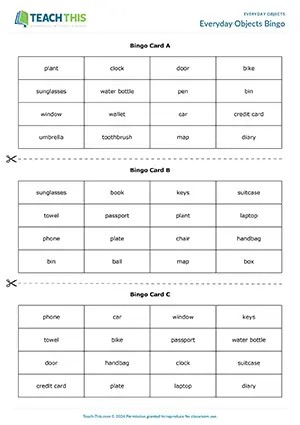
ESL Everyday Objects Game - Vocabulary: Bingo, Gap-fill - Group Work
In this free everyday objects game, students play bingo by completing sentences with everyday object words. In groups, the bingo caller reads a sentence at random from the caller's sheet using the word 'blank' for the missing object word...
Name Two Objects...

ESL Everyday Objects Game - Vocabulary: Brainstorming, Providing Vocabulary - Group Work
In this engaging everyday objects game, students race to name common objects that match 'Name two...' prompts. In groups, students take turns picking up a card and reading the 'Name two...
Personal Items Pelmanism

ESL Everyday Objects Games - Vocabulary and Speaking: Matching, Pelmanism, Forming Sentences, Freer Practice - Pair Work
Here are two fun everday objects vocabulary games to help students learn and practice the names of common personal items. First, students play a pelmanism...
Everyday Object Races
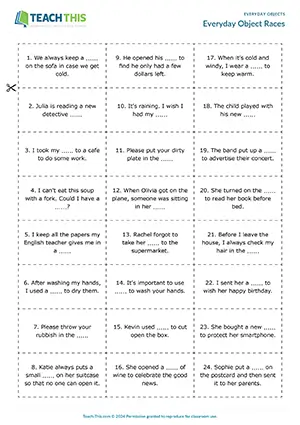
ESL Everyday Objects Games - Vocabulary and Speaking: Matching, Gap-fill, Forming Sentences, Freer Practice - Group Work
Here are two everyday objects games to help students practice vocabulary for common objects. First, students play a matching game to practice the vocabulary. In groups, students take turns to pick up a...
Everyday Objects Vocabulary
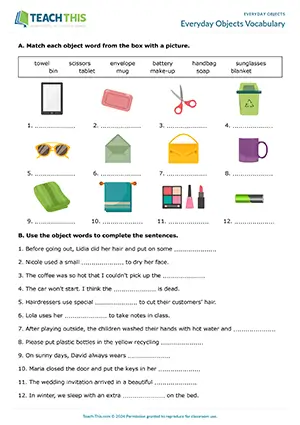
ESL Everyday Objects Worksheet - Vocabulary Exercises: Matching, Gap-fill, Multiple Choice, Sentence Completion
Here is a useful everyday objects worksheet to help students practice vocabulary for common objects. First, students match everyday object vocabulary from a box with pictures. Students then...
Talking About Everyday Objects
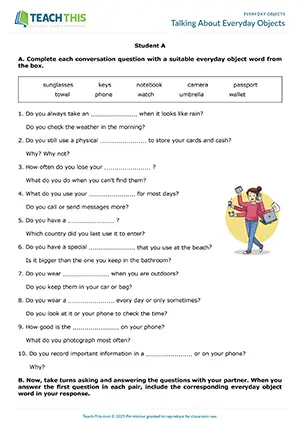
ESL Everyday Objects Activity - Vocabulary and Speaking: Matching, Gap-fill, Asking and Answering Questions, Controlled and Freer Practice - Group and Pair Work
In this rewarding everyday objects activity, students complete, ask and answer conversation questions containing the names of commonly used objects. First...
Bits and Bobs
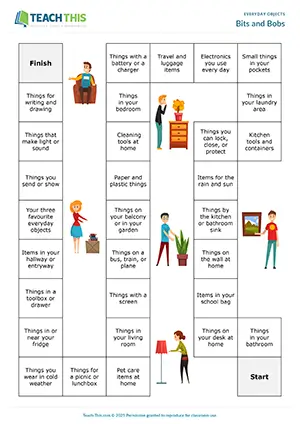
ESL Everyday Objects Board Game - Speaking and Vocabulary: Impromptu Speech, Freer Practice - Group Work
In this productive everyday objects board game, students practice vocabulary related to everyday objects by speaking in response to prompts for 30 seconds, using full sentences and providing simple details...
Everyday Objects Unpacked
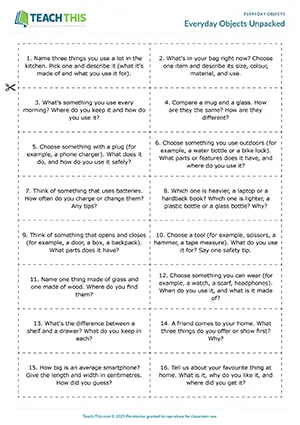
ESL Everyday Objects Activity - Vocabulary and Speaking: Asking and Answering Questions, Discussion, Freer and Communicative Practice - Group Work
In this everyday objects discussion activity, students ask and answer questions about familiar items, describe materials and uses, make simple comparisons, and...
Here's what our members are saying...
